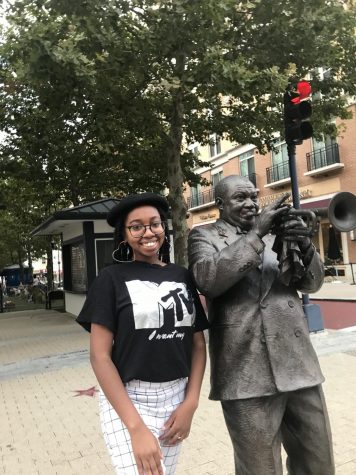“What’s your major?”
This is a question that we, as college students, are used to being asked on a constant basis, seemingly by everyone.
From relatives who want to live vicariously through us by others who try to project their experiences or narratives onto us without our permission to do so. I am sure we can all agree that being forced into a position where this potentially loaded question may arise will not only lead to anxiety or other unwelcome feelings, but some of us may be able to feel the lack of authenticity in their questioning.
This question seems to ask us to reveal our major as a beautifully wrapped package followed by our professional goals, a strategic five-year plan to achieve them and exactly how we will live life in the most intricate detail — as if we have all of the answers by that moment in time.
Asking a college student their major can be a daring query because quite actually, half of us don’t know what we’re having for dinner the next night.
There are times where we can even be the ones who bring attention to our major in conversations. Almost every time I am in a setting where I have to introduce myself to others, I feel I am expected to attach my major to the end of my introduction as if it is a part of my identity.
As an ambassador for San Diego State, my major is attached to my introduction when I’m giving a tour to prospective families, on duty for a university-affiliated event and interacting with guests or in some other capacity where I’m serving the university. There isn’t necessarily a problem with that, but really, I’m proving that your major does seem like it becomes a part of your identity over time. If you were to ask my fellow ambassadors to describe me, just from hearing my tour introduction hundreds of times, I am confident they wouldn’t fail to mention that I am a journalism major, as if it also added to what makes me who I am.
We may use a person’s major to form what appears to be reasonable assumptions about the strengths, passions and personal ambitions of a person. In doing so, however, we sometimes establish a direct correlation where one may not exist: between the major and certain aspects of a person’s life.
There is also the possibility that we might ask each other about our majors because what we are studying is why we are in college in the first place. Our major connects us with communities and a plethora of opportunities to excel not only in college but also after we graduate. It serves as a bridge between gaining knowledge to do well professionally and going out into the world to achieve the aspirations we have developed as a result of wanting to study that particular major.
While we have yet to settle in our careers, asking a student what their major is almost like asking them what they do for a living. On the receiving end, we may feel inclined to share our major and the story behind pursuing it.
Depending on what the answer to the question at hand is, it reinforces the notion instilled in us that a specific major leads to a specific outcome or it triggers stereotypes associated with that specific area of study.
I can’t even bring myself to count the many instances where I have shared that I am a journalism major and people assume that I want to be on television. I do, in fact, want to be on television. However, not all journalists are on television or have a desire to be; and this is just a common reality. But, of course, I don’t always correct people and remind them of that.
This is just an example of the fact that, without even realizing it, we have been immersed in stereotypes about certain majors. Let’s take the liberal arts and STEM majors, for example. Common misconceptions with these two general areas of study include the struggle with finding a steady job and the latter only aspiring to be a doctor or engineer.
I get it. We genuinely want to become acquainted with each other or may feel like we don’t have an alternate question to ask when it comes to sparking up small talk. Instead of blatantly asking a fellow student what their major is, you could ask what they are working towards or some goals they’d like to achieve during college. You can find out what they are involved with on campus or what made them choose to attend SDSU. The options are endless and I believe we should all aim to be better conversationalists.
A major doesn’t have to be all you learn about a person and it definitely shouldn’t be the beginning and end of a conversation. It is much more engaging to ask about someone’s interests or their Aztec experience.
Sometimes, it’s just hard explaining what your major is, why you’ve chosen that major, what your goals are and other things relevant to the question that those asking may not understand.
As college students, it’s impossible to avoid the question altogether. However, we should simply deem it irrelevant when meeting someone for the first time. I encourage you to keep that in mind when meeting someone for the first time. The answer could be one that’s complicated and one that you aren’t ready for, so here’s a tip: if it’s not hanging around my neck or tattooed on my forehead, just let it go.
Trinity Bland is a sophomore studying journalism. Follow her on Twitter @trinityaliciaa.











